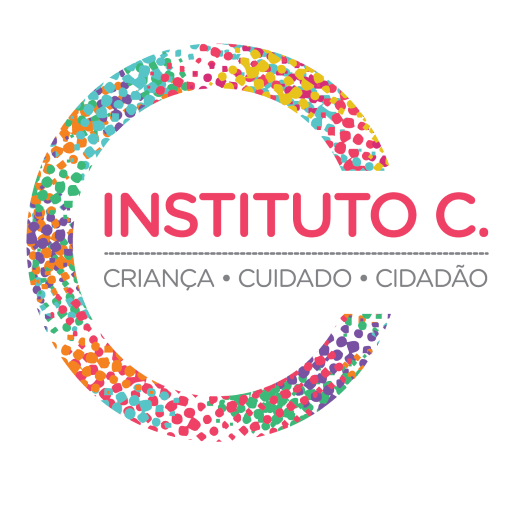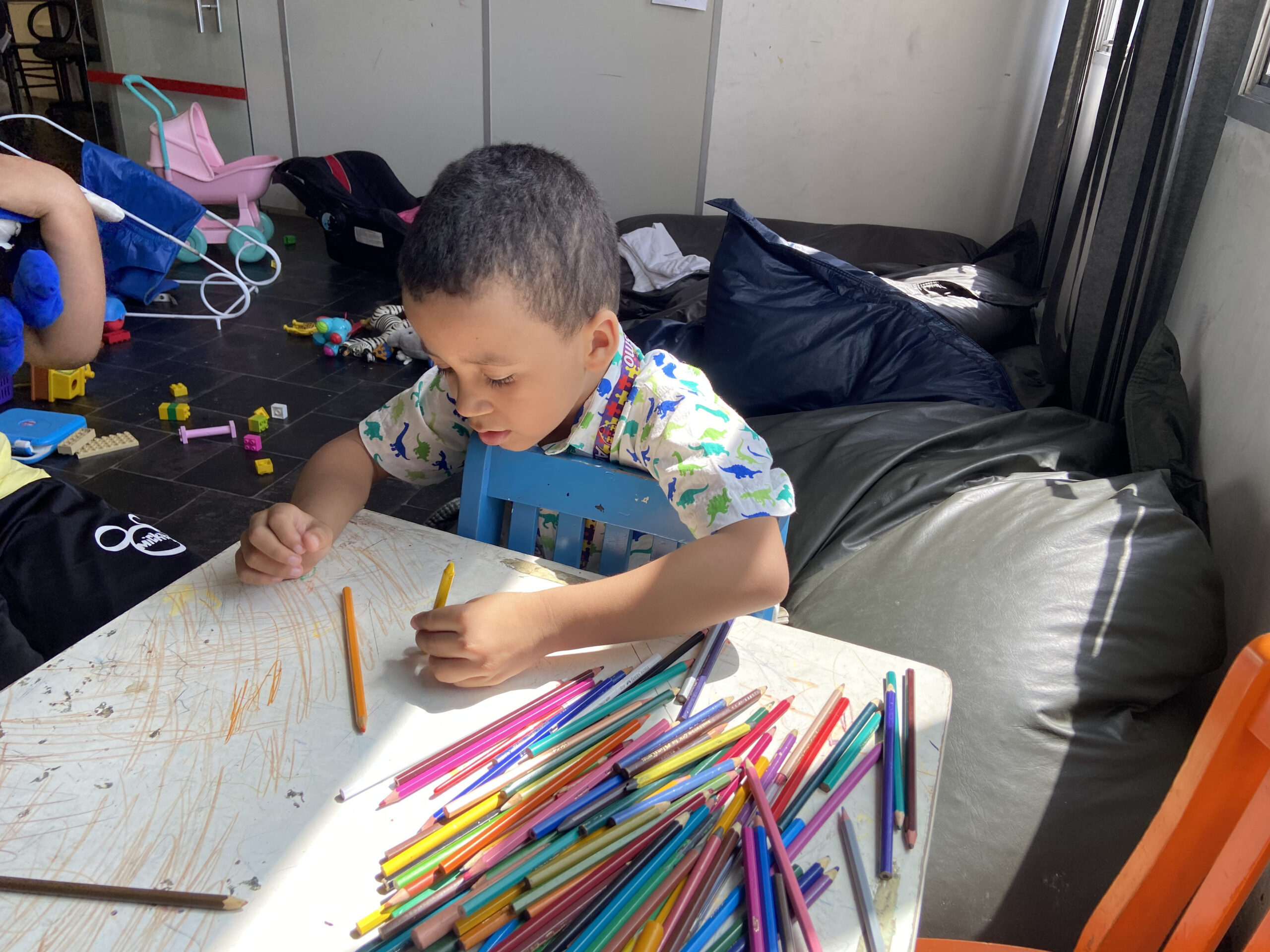Access to rights is important for the development of children with autism
April is marked by Autism Awareness, a movement that highlights the importance of discussing the rights of people with autism, the pursuit of autonomy, and a more inclusive society. Having a dedicated month for this awareness also serves as a way to give a voice to families with children diagnosed with Autism Spectrum Disorder (ASD) and to help guide their journey after diagnosis.
ASD affects neurological development and can impact the organization of thoughts, feelings, and emotions, which directly influences the daily life of those with this neurodivergence. According to the Virtual Library of the Ministry of Health, the disorder can be classified into three types: classic autism, high-functioning autism (Asperger’s syndrome), and pervasive developmental disorder—not otherwise specified (PDD-NOS), with each type presenting different characteristics regarding social interaction, speech, and neurological development.
In all three types, treatment is more accessible when diagnosed during childhood, enabling the pursuit of rights to begin. Katia Moretti, coordinator of Instituto C’s Central Branch, emphasizes the importance of dedicating a month to this topic:
“Awareness about autism is fundamental to give visibility to the cause and promote a deeper understanding of the needs and challenges faced by these children and their families.”
Rights of People with Autism
Some rights of people with autism may still be unknown; therefore, we highlight those that help families gain more autonomy and provide children with a dignified childhood, marked by inclusion and respect. Basic rights such as access to school and transportation are important, but there are many others that encompass the daily life of autistic individuals, detailed in the Manual of Rights of People with Autism, developed by the School of Parliament to guide families. Here are some key points:
-
Education: specialized assistant and individualized teaching
Depending on the needs of each student and with medical proof, it is possible to have a specialized assistant in the classroom, according to Law 12.764/2012. Another legal provision is individualized education tailored to each person’s specificities, so the IEP (Individualized Education Plan) is a right for all people with autism. -
Health: comprehensive care and medication
People with autism have the right to comprehensive medical care, including diagnosis, treatment, and proper follow-up with priority, according to the Statute of People with Disabilities (Law 13.146/2015). The right to medication provided by the public health system (SUS) also applies to autistic individuals who need specific medicines. -
Mobility: free access and special parking spots
For transportation, people with autism have rights that make daily mobility easier. In São Paulo, free access to buses, trains, and subways is guaranteed for all people with disabilities through the special Bilhete Único card, which can be requested on the SPTrans website. Additionally, special parking spaces can be used with the DeFis parking card, which confirms the person’s disability when in the vehicle. -
Leisure: half-price tickets and adapted cinema sessions
Leisure time is essential for the development of children with autism, so half-price tickets apply regardless of income, in cultural and sports venues. In São Paulo, since 2020, Law No. 17.272 requires cinemas to offer adapted sessions with slightly dimmed lights, lower volume than usual, and no commercial advertising to avoid disturbances. -
Identification: CIPTEA
Autism is not a disability that affects children’s appearance, so it is important they have identification to use when necessary. The Identification Card for People with Autism Spectrum Disorder (CIPTEA) is an official document used to facilitate identification of autistic individuals in public and private services throughout São Paulo. It can be issued both online and at Poupatempo service centers.
Despite having laws that guarantee their rights, people with autism still face many barriers in accessing them. A significant challenge is that many systems require internet access, and not everyone has the knowledge or means to make requests or upload documents.
Some public offices are also hard to access due to bureaucratic procedures and the high volume of diverse information. However, “atypical mothers” tend to be combative and increasingly aware of what they should demand from public authorities, counting on networks like Instituto C in this mission.
Instituto C’s Work in Guaranteeing Rights
At Instituto C, about 37% of the children served have autism, so the work focuses on supporting families in securing their rights, ensuring access to legally guaranteed services for all children served, and also empowering mothers. Through multidisciplinary work, Instituto C offers services with professionals who assist with families’ diverse needs, such as nutrition addressing healthy eating and food selectivity, income generation to support job opportunities, and psychosocial support for mental health care.
The institute guides families toward achieving essential rights so people with ASD can gain autonomy and a full life. However, this reality remains distant for many families, especially those lacking the tools to claim their rights.
Thus, the technical team acts as a gateway to knowledge. Through initial contact, social workers seek to understand each family’s needs and guide them accordingly. Franciele Fernandes, social worker at Instituto C, says most family demands are related to access to health and education, and she explains where services can be found or even directly contacts public agencies.
She highlights the importance of the Continuous Cash Benefit (BPC), which guarantees low-income families with children with disabilities financial support to cover basic needs like food. “A child who does not eat well cannot develop or focus,” Franciele stresses, emphasizing the importance of this aid.
Another frequent demand is school inclusion, especially in the early years, as Lualinda Toledo, pedagogue at Instituto C, explains:
“We need to carefully understand whether the child belongs to regular or specialized schooling,” she points out.
Atypical Mothers Who Inspire
Samanta is now a social work intern at Instituto C but initially came with her family seeking guidance and support networks. A single mother of two boys with autism, she says atypical motherhood completely changed her life, permeating all family challenges.

At the institute, she found a space to exchange experiences and strengthen other mothers. “I see it as an exchange. We learn from the knowledge of the professionals, but they also feed off the experiences of the mothers themselves,” Samanta says about the professionals’ work.
“The institute helps us open doors—doors that others have closed, kept shut, and sometimes locked with a key. They help strengthen the family’s connection to their community.”
Besides working with Instituto C, Samanta mobilizes a support group for families of autistic and atypical children in her neighborhood, Cidade Tiradentes. At Fact Corações Azuis, many mothers share demands and challenges in fighting for their children’s rights but find strength and support in the network.
She shares that pursuing her children’s rights also motivated her to gain knowledge to navigate various services, inspiring her desire to become a social worker. This learning is shared with other mothers during conversations, empowering them. “When you speak up and take a stand, you become a force. Because depending on what you say, you awaken those who don’t know or don’t have access and are going through a situation,” she says.
Help Instituto C
Like Samanta’s family, many others benefit from Instituto C’s work and come to understand their rights with support from our technical team. Through assistance, paths are paved to ensure better quality of life for all, especially supporting children’s development.
There are many ways to contribute to Instituto C’s work—through donations or volunteering in areas such as benefits assembly and distribution, toy library, family counseling, psychotherapy, and the Nota Fiscal Paulista program.

